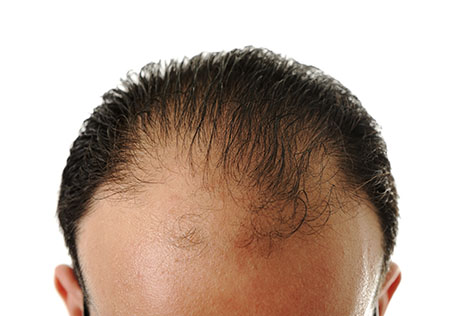AIM Uncovered
Exploring the latest insights and trends in technology and innovation.
Hair Today, Gone Tomorrow: The Surprising Truth About Hair Loss
Uncover the shocking truths behind hair loss and discover unexpected solutions to restore your confidence. Don't miss out!
The Science Behind Hair Loss: Understanding Causes and Solutions
Hair loss is a complex condition that affects millions of people worldwide. Understanding the causes of hair loss is crucial for developing effective solutions. Several factors contribute to this common issue, including genetics, hormonal changes, medical conditions, and environmental influences. For example, androgenetic alopecia, often referred to as male or female pattern baldness, is primarily driven by genetic predisposition and hormonal fluctuations. Additionally, conditions such as alopecia areata or telogen effluvium can lead to sudden hair loss, often triggered by stress, illness, or significant lifestyle changes.
When it comes to addressing hair loss, a variety of solutions are available.
- Topical treatments like minoxidil have been proven effective for many individuals.
- Oral medications such as finasteride are also options for managing hair loss in men.
- Hair transplant surgery offers a more permanent solution, allowing patients to restore their natural hairline.

Top Myths About Hair Loss Debunked
Hair loss is a common concern that affects millions, yet misconceptions about it can lead to unnecessary anxiety. One of the most prevalent myths is that hair loss only affects men. While it’s true that male-pattern baldness is more visible, women also experience hair thinning and loss due to various factors such as hormonal changes, genetics, and medical conditions. Understanding that both genders can be affected is crucial in addressing the issue appropriately.
Another myth that needs debunking is the belief that frequent shampooing can cause hair loss. In reality, washing your hair does not lead to hair loss; it helps maintain scalp health and removes buildup. Using harsh chemicals in shampoos might be detrimental, but gentle cleansing is essential for healthy hair. Consider opting for sulfate-free shampoos and a balanced washing routine to keep your hair and scalp in the best condition.
Are You at Risk? Factors That Contribute to Hair Loss
Hair loss is a concern that affects many individuals, and understanding the factors that contribute to hair loss is crucial in addressing this issue. Genetics plays a significant role, as conditions like androgenetic alopecia can run in families. Hormonal changes due to various life stages, such as pregnancy, menopause, or thyroid imbalances, can also trigger hair thinning. Additionally, certain medical conditions, including autoimmune diseases and iron deficiency anemia, may lead to unexpected hair loss.
Another important aspect to consider is lifestyle. Poor nutrition, particularly a lack of essential vitamins and minerals, can weaken hair structure and growth. Stress is another contributor; chronic stress can push hair follicles into a resting phase, causing them to fall out more easily. Furthermore, habits such as excessive heat styling, harsh chemical treatments, and tight hairstyles can physically damage hair and lead to hair loss. Recognizing and addressing these risks can help you take proactive steps towards maintaining your hair health.